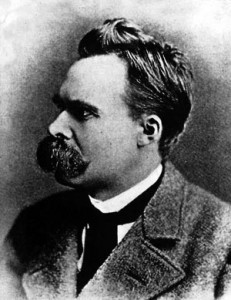In everything that I have thus far said about the experience of reading and my own experience of reading, there is only one notion that I want everyone to constantly bear in mind: this is only one possible potential of understanding reading. The analogy of understanding the world as a text may be understood in a plurality of contexts. All I offer is one possible method and whether or not this reader wishes to take it to heart depends on the heart of the reader.
“What is given form here is not the totality of life but the artist’s relationship with that totality, his approving or condemnatory attitude towards it; here, the artist enters the arena of artistic creation as the empirical subject in all its greatness but also with all its creaturely limitations.”
—György Lukács
The beauty of the analogy of a text is that it allows for the reader to choose between understanding the text as a thing created by a person, taking that person into consideration; or taking the text as its own entity, which only truly comes into becoming when engaged in participation with a reader. Regardless of which text appeals to one’s sensibilities more, both texts are created by language, which by itself calls for the most intricate plurality known. Language is the simplest whole that is simultaneously a multitude of disconnected parts. This idea can be traced back as far as Genesis. When God destroyed the Tower of Babel, he wasn’t destroying mankind’s creation of language and his achievements. He destroyed mankind’s attempt to unify all the languages, because language isn’t meant to be a perfect unification. It urges its own tension and to deny that is like denying one’s own self-awareness. What texts do is they take this language and utilize it in order to create a poetic rendering of the world. And despite the fact that by creating this rendering, this reflection, the image created is merely an appearance, a portrait of what is truly attempting to be represented, and we are able to get more from this image than from anything else.
“Why couldn’t the world that concerns us—be a fiction? And if somebody asked, “but to a fiction there surely belongs an author?” —couldn’t one answer simply: why? Doesn’t this “belongs” perhaps belong to the fiction to? Is it not permitted to be a bit ironical about the subject no less than the predicate and object?”
—Friedrich Nietzsche
A frequent topic of conversation these days is where the direction of literature is headed, especially printed literature, in this technological Internet age. But what is rarely considered is the fact that literature is merely one medium for language. Similar questions are also asked about poetry, which seems to be suffering a more brutal battle than prose. But at the end of the day, poetry and prose are merely forms for the content of language. If the Internet and technological age are as threatening to the mediums of poetry and prose as people are making them out to be, then what will merely happen is that language will find a new form, a new vehicle. The only reason it’s difficult to imagine the type of vehicle it would be is because we have lived in constant mediums of language since before the time of Homer. Now we have the Internet, something maybe vaguely conceptualized before its time, and we have absolutely no idea what the potential form of language will be in relation to the world that the Internet has created for itself. We’ve already gone through the times of Leet speak and Internet shorthand (LOL, OMG); but that’s just the evolution of conversation. The evolution of the poetic rendering of the world in the world of the Internet is, for now, a difficult thing to conceive.
“A whole world will envelop you, the happiness, the abundance, the inconceivable vastness of a world. Live for a while in these books, learn from them what you feel is worth learning, but most of all love them.”
—Rainer Maria Rilke
———————————————————————————————————
Marina Manoukian, Sarah Lawrence College
Follow the Campus Clipper on Twitter and Like us on Facebook!
Interested in more deals for students? Sign up for our bi-weekly newsletter to get the latest in student discounts and promotions and follow our Tumblr and Pinterest. For savings on-the-go, download our printable coupon e-book!
Tags: Experience, Forms, György Lukács, Language, literature, Nietzsche, poetry, reading, Rilke, technology



